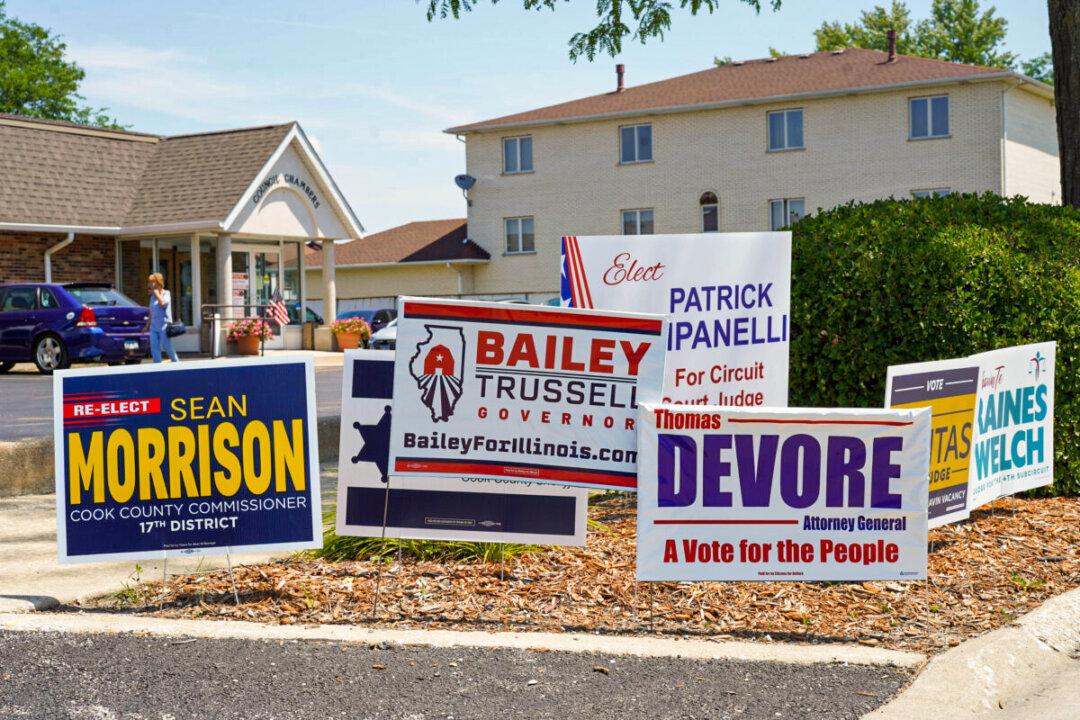Trump-Endorsed Darren Bailey on June 28 won the six-way Illinois Republican gubernatorial primary election. He will face Governor J.B. Pritzker, a Democrat, in the fall.
Bailey drew 57 percent of the vote as of 10:57 p.m. on Tuesday, easily defeating the other Republicans in the race.





